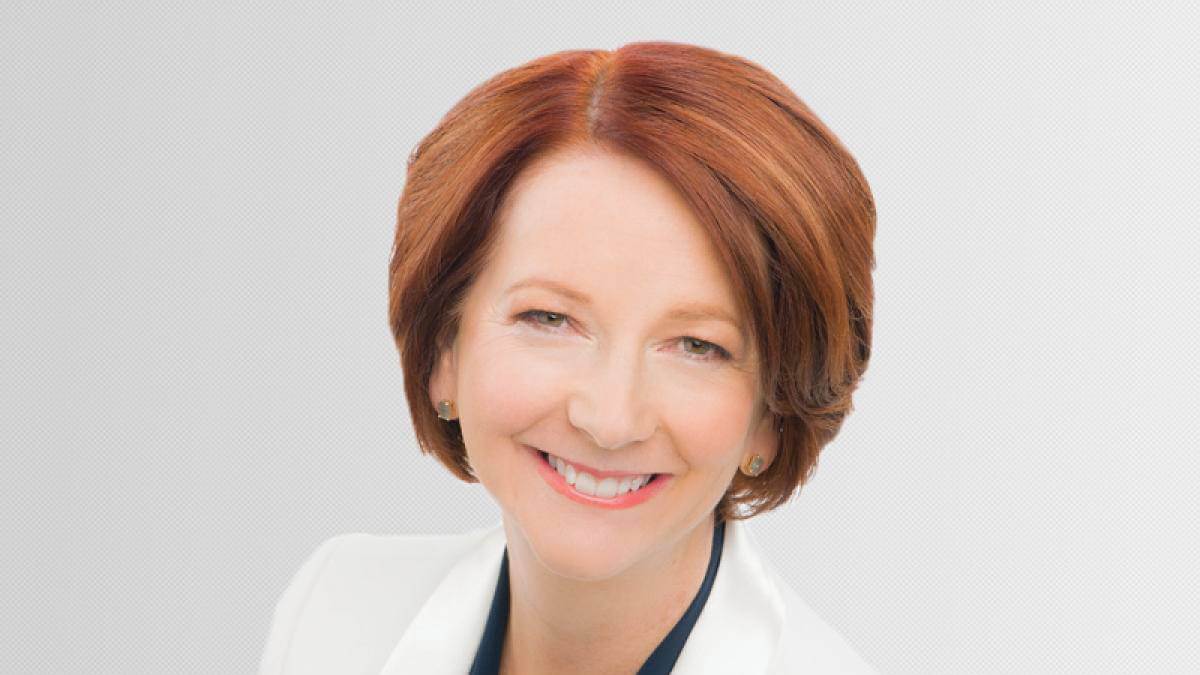“I rise to oppose the motion moved by the leader of the opposition, and in doing so I say to the leader of the opposition I will not be lectured about sexism and misogyny by this man, I will not.”
“And the government will not be lectured about sexism and misogyny by this man. Not now, not ever.”
Former prime minister Julia Gillard’s misogyny speech in 2012 made waves when she first gave it, but its impact has lingered even 10 years on.
The phrase “not now, not ever” has been printed on shirts, mugs, and tea towels, becoming almost synonymous with the gender equality movement in Australia.
Now the National Film and Sound Archive (NFSA) has recognised the significance of Ms Gillard’s address to former opposition leader Tony Abbott, making it an official Sound of Australia.
The speech is one of 10 recordings the NFSA collects each year that have had a defining impact on Australian culture, inducting them into its Sounds of Australia registry.
When the misogyny speech’s 10-year anniversary passed in October Ms Gillard told ABC Radio Adelaide she was pleasantly surprised the speech had remained influential.
“I knew that it was a weighty speech, but I had no inkling it was going to travel beyond the parliament the way it has,” she said.
“It’s become a kind of anthem, a kind of track that people go to when they want to pump themselves up.
“Women still know that they’re navigating a very gendered world.”
@minorfauna After multiple requests, I bring you my take on the ICONIC ‘Misogyny’ speech by Julia Gillard with a #glambot twist. #bosschallenge #quarantine ♬ original sound – minorfauna
While many on social media learnt the words of the famous speech off by heart as a TikTok trend, Ms Gillard said the speech was largely improvised on the day.
She said she did not listen back to the speech even now, preferring to remember it as she lived it.
“It was a speech kind of given in the flow,” Ms Gillard said.
“It’s come to mean something to people, and that’s kind of enough for me.”
The NFSA has inducted political speeches in previous years including Kevin Rudd’s apology to the Stolen Generation.
Stayin’ Alive, Neighbours and a prayer
NFSA curator Thorsten Kaeding said the 2022 Sounds of Australia were designed to showcase the “cream of the crop” of the national archive’s collection.
“With this year’s additions, we are up to 175 inductees on the registry,” Mr Kaeding said of the Sounds of Australia collection, which began in 2007.
“This year’s a really interesting one. I think it’s a really diverse one and it speaks a lot to some of the really important parts of Australian culture and important events in Australian culture.”
Other inductees this year include Sister Janet Mead’s The Lord’s Prayer — a rock version of the prayer that shot Sister Mead to stardom in the 1970s, making her the first Australian artist to have a gold record in the United States.
She was also nominated for a Grammy for the song but lost to Elvis Presley.
Stayin’ Alive, one of the biggest hits from Australian funk outfit the Bee Gee’s, which featured in the film Saturday Night Fever, is also one of this year’s inductees.
Another is the theme song of the long-running Australian soap, Neighbours, performed by crooner and TV personality Barry Crocker and written by Tony Hatch and Jackie Trent.
2022 Sounds of Australia:
- Farewell address by Hallam Lord Tennyson, 1904
2. Digger by Jack Lumsdaine, 1942
3. Horrie Dargie Concert by the Horrie Dargie Harlequintet, 1952
4. The Drover’s Dream; The Bullockies’ Ball by the Bushwhackers, 1956
5. Out with the old and in with the new by Ted Roberts, 1965
6. The Lord’s Prayer by Sister Janet Mead, 1973
7. Stayin’ Alive by the Bee Gees, 1977
8. Neighbours theme song by Barry Crocker, Tony Hatch and Jackie Trent, 1987
9. Bicentenary protest coverage by Radio Redfern, 1988
10. The Misogyny speech by Julia Gillard, 2012

